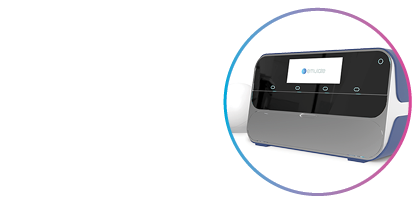Organs-on-Chips are recognized for the potential to reduce animal testing, revolutionize the development of new drugs, and open a new era of personalized health
CAMBRIDGE, Mass. – Emulate Inc., today announced that the company’s Human Organs-on-Chips have been named as overall winner of the ‘Design of the Year’ award by London’s Design Museum. The award is selected by design experts, practitioners, curators and academics from around the world, who were united in their responsibility to select a winner that emphasizes design’s impact on our lives now and in the future, solving diverse problems with innovation and intelligence.
“This winning design is a great example of how design is a collaborative practice embracing expertise and know how across disciplines. Its selection as Design of the Year 2015 also signifies a desire to recognize and award design that can significantly impact society now and in the future,” said Gemma Curtin, who is the Designs of the Year 2015 exhibition curator.
This is the epitome of design innovation – elegantly beautiful form, arresting concept and pioneering application
— Paola Antonelli, Senior Curator of Architecture & Design and Director of R&D at the Museum of Modern Art
Organs-on-Chips emulate human biology to understand how diseases, medicines, chemicals, and foods affect human health. Based on the Organs-on-Chips technology, which places living human cells in microengineered environments, the Emulate team has developed an integrated system that provides a window into the inner-workings of the human body, enabling the prediction of human response with greater precision and detail than today’s cell culture or animal-based testing. Emulate’s team has designed a range of Organs-on-Chips, including the lung, gut, kidney, skin, eye, and blood-brain-barrier, which can be linked together into a ‘Human-On-Chips’ system. Emulate’s products are now being used commercially to improve innovation, design and safety for industrial applications in the areas of pharmaceutical, personalized medicine, agriculture, cosmetics and chemical-based consumer products.
“We are deeply honored that our Organs-on-Chips have been awarded Design of the Year, and we are passionately following our mission to apply our new living products for a range of applications to improve human health,” said Geraldine A. Hamilton, Ph.D., President and Chief Scientific Officer of Emulate. “This prestigious recognition inspires us even more to translate the Organs-on-Chips technology into a commercially-available system that can be used to design better and safer products for humans, as well as creating a new era of applications in the personalized health space.”
Emulate is commercializing the Organs-on-Chips technology based on pioneering work conducted by Donald Ingber, M.D., Ph.D. and his team at the Wyss Institute for Biologically Inspired Engineering at Harvard University. Each Organ-on-Chip can contain tens of thousands of cells in tiny, hollow channels and is approximately the size of a USB memory stick. The Organs-on-Chips are designed to recreate human biology, emulating dynamics of organs at the cellular level with unprecedented precision, reproducibility and control.
This year is the first time the prestigious Design of the Year award has been presented to a product from the field of medicine, and there was strong competition from various industries, including Google’s self-driving car and several other notable designs. Human Organs-on-Chips received their nomination from Paola Antonelli, the Museum of Modern Art’s Senior Curator of Architecture & Design and Director of R&D. “This is the epitome of design innovation – elegantly beautiful form, arresting concept and pioneering application,” said Antonelli.
Organs-on-Chips are featured at the Design of the Year exhibition, which is open to the public through March 31 2016, at London’s Design Museum.
Organs-on-Chips for Emulating Human Biology
Based on our Organs-on-Chips technology, which places living human cells in microengineered environments, Emulate has developed an integrated system that provides a window into the inner-workings of the human body. Our living products set a new standard for predicting human response, with greater precision and detail than today’s cell culture or animal-based testing. Emulate’s Organs-on-Chips contain tiny hollow channels lined by living human cells and tissues cultured under continuous fluid flow and mechanical forces, such as cyclic breathing and peristalsis, which recreate the microenvironment experienced by cells within the human body. Each Organ-on-Chip can contain tens of thousands of cells and is approximately the size of a USB memory stick. Organs-on-Chips are miniaturized living systems that represent the smallest functional unit of an organ that effectively recapitulate organ-level physiology and disease responses. Multiple Organs-on-Chips, such as lung, liver, intestine, kidney, skin, eye, and blood-brain-barrier, can be linked together by flowing human blood or nutrient-containing liquid to create a “Human-Body-on-Chips” that closely replicates whole body-level responses.
About Emulate
Emulate, Inc. is a private company that creates living products for understanding how diseases, medicines, chemicals, and foods affect human health. By setting a new standard for recreating true-to-life human biology, Emulate is advancing product innovation, design and safety across a range of applications in drug development, personalized health, agriculture, cosmetics and chemical-based consumer products. Emulate continues to develop a wide range of Organs-on-Chips, disease models and diagnostics through collaborations with industry partners and internal programs. By combining our Organs-on-Chips system with individuals’ stem cells, Emulate is accelerating progress toward a new era of precision medicine and personalized health. For more information, visit www.emulatebio.com.
Media Contact:
Kathryn Morris
The Yates Network
Tel: 845-635-9828
kathryn@theyatesnetwork.com



